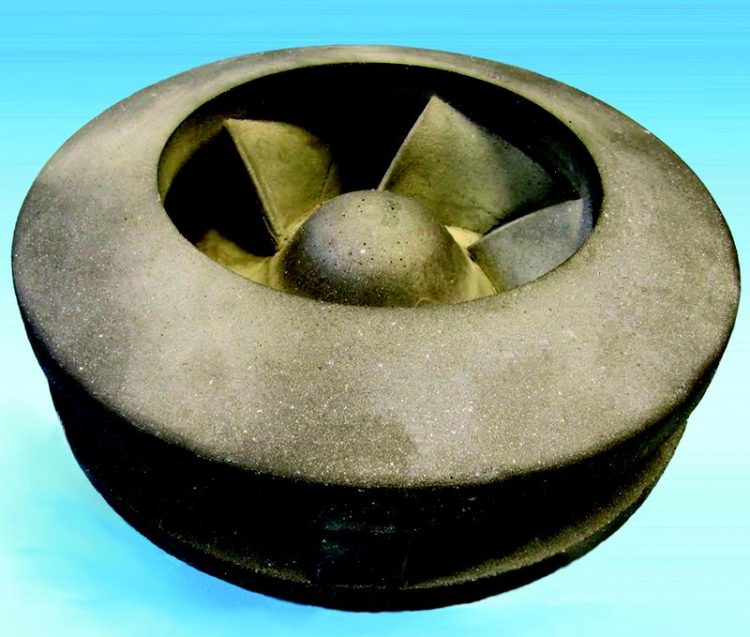Nonoxide ceramics open up new perspectives for the chemical and plant engineering

Radial flow ceramic pump impeller
Extremely hard as diamond, shrinking-free manufacturing, resistance to chemicals, wear and temperatures up to 1300 °C: Silicon carbide (SiSiC) bundles all these characteristics and is the key to competitive advantage in machinery and plant engineering.
Mineral casting principle in ceramic manufacturing expands opportunities
Scientists at Fraunhofer IKTS in Dresden have now developed a method by which the shaping of the material SiSiC for complex components can be realized cost-efficiently.
They adapted the proven production process for SiSiC-filled reaction resin concretes by SICcast Mineralguss GmbH to the ceramic manufacturing. A mixture of coarse particles with a polymeric binder is casted without pressure in open molds and subsequently tempered.
A method principle, which enables the production of large and complex components in one single step.
Increase of service life and productivity, minimization of costs
By the new method costly materials-, machinery- and personnel consuming module construction methods and combinations thereof are bypassed.
The economic process substitutes conventional materials such as metals or plastics in chemical and plant engineering, e.g. in the pump industry. With the allround material silicon carbide service life of machines can be increased by up to 100 %.
Further potential applications of the material are components of nozzles, mills or burners as well as structural components for high-precision applications in optical industry.
From April 13 to 17 you will meet IKTS scientists in Hall 6 on Booth B16.
http://www.ikts.fraunhofer.de/content/dam/ikts/de/doc2/Messen/PI_The%20materials…
Media Contact
All latest news from the category: Trade Fair News
Newest articles

A ‘language’ for ML models to predict nanopore properties
A large number of 2D materials like graphene can have nanopores – small holes formed by missing atoms through which foreign substances can pass. The properties of these nanopores dictate many…

Clinically validated, wearable ultrasound patch
… for continuous blood pressure monitoring. A team of researchers at the University of California San Diego has developed a new and improved wearable ultrasound patch for continuous and noninvasive…

A new puzzle piece for string theory research
Dr. Ksenia Fedosova from the Cluster of Excellence Mathematics Münster, along with an international research team, has proven a conjecture in string theory that physicists had proposed regarding certain equations….



